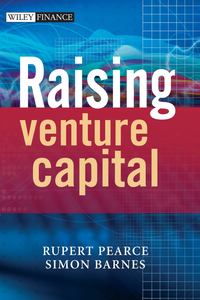
Полная версия
Miss Chance

SIMON BARNES
Miss Chance

Copyright
This novel is entirely a work of fiction. The names, characters and incidents portrayed in it are the work of the author’s imagination. Any resemblance to actual persons, living or dead, events or localities is entirely coincidental.
HarperCollinsPublishers Ltd.
1 London Bridge Street
London SE1 9GF
www.harpercollins.co.uk
First published in Great Britain by HarperCollinsPublishers 2000
Copyright © Simon Barnes 2000
Simon Barnes asserts the moral right to be identified as the author of this work
An extract from ‘along the brittle treacherous bright streets’ is reprinted from Complete Poems 1904–1962 by E.E. Cummings, edited by George J. Firmage, by permission of W.W. Norton & Company. Copyright © 1991 by the Trustees for the E.E. Cummings Trust and George James Firmage.
An extract from ‘The Waste Land’ is reprinted from Collected Poems 1909–62 by T.S. Eliot by permission of Faber and Faber Ltd.
All rights reserved under International and Pan-American Copyright Conventions. By payment of the required fees, you have been granted the nonexclusive, nontransferable right to access and read the text of this ebook on-screen. No part of this text may be reproduced, transmitted, downloaded, decompiled, reverse-engineered, or stored in or introduced into any information storage and retrieval system, in any form or by any means, whether electronic or mechanical, now known or here in after invented, without the express written permission of HarperCollins ebooks
HarperCollinsPublishers has made every reasonable effort to ensure that any picture content and written content in this ebook has been included or removed in accordance with the contractual and technological constraints in operation at the time of publication
Source ISBN: 9780006511960
Ebook Edition © OCTOBER 2016 ISBN: 9780007484874
Version: 2016-10-04
Dedication
For CLW, whom I courted on horseback, and also for Dolly Dolores VII (who may feel inclined to sue)
Contents
Cover
Title Page
Copyright
Dedication
Part One: Schooling
Chapter 1
Chapter 2
Chapter 3
Chapter 4
Chapter 5
Chapter 6
Chapter 7
Chapter 8
Chapter 9
Chapter 10
Chapter 11
Chapter 12
Chapter 13
Chapter 14
Chapter 15
Chapter 16
Chapter 17
Chapter 18
Chapter 19
Chapter 20
Chapter 21
Chapter 22
Chapter 23
Chapter 24
Chapter 25
Chapter 26
Chapter 27
Chapter 28
Chapter 29
Chapter 30
Part Two: Competition
Chapter 1
Chapter 2
Chapter 3
Chapter 4
Chapter 5
Chapter 6
Chapter 7
Chapter 8
Chapter 9
Chapter 10
Chapter 11
Chapter 12
Chapter 13
Chapter 14
Chapter 15
Chapter 16
Chapter 17
Chapter 18
Chapter 19
Chapter 20
Chapter 21
Chapter 22
Keep Reading
About the Author
About the Publisher
1
You can’t control the people you love. The phrase had invaded Mark’s head like a parasite. It squirmed and wriggled around for, it seemed, most of the night. You can’t control the choice, and having involuntarily chosen, you can’t control the person either. Neither sleeping, nor quite waking, it seemed important – no, essential to the processes of life – to encapsulate the dual notion in a perfectly honed epigram. Final line to a winsome poem, perhaps. Or first line of a Morgan short story. Though love wasn’t really her subject, was it?
Or was it? But nobody ever did quite understand her stories, she said; and he was the only one that ever understood her jokes. Until now, presumably.
Days were easier, of course, and evenings really not too bad. There are, of course, disadvantages to being left by your wife, but it is a great opportunity to look up old friends. Mark had done a lot of work on that phrase as well.
‘Callum?’
‘Oh God, you. Need me to talk you out of suicide again?’
‘It’s either a beer with you or the gas oven.’
Banter. Make light. A jest. Guess at the horrors, if you wish; but Mark preferred banter. He had made this resolution, he liked to think, to protect the world from boredom: who wanted to hear about his banal predicament? But it protected him too. Not thinking. Forget the night, and its wakefulness and its vain pursuit of perfect epigrams. And anyway, it was in the Morgan tradition, was it not? She had left him, not in a storm of tears or temper, but with a jest. Rather a loving jest. But then she would, wouldn’t she?
Callum told him that Naz was on late turn and he was in sole control of their boy, and so he would not be available for drink and solace until ten. Which was far too long. And left Mark flicking through the address book once again: a name, a number, an inspiration.
He had passed her before. And kept going. Now he looked again. Well, he reasoned. Why the hell not? True, he had not seen her since that night when they had concealed the objet d’art – but these were not normal times. A state of emergency had been declared: this would be a serious escalation. So escalate. His hand made a series of minute advances and retreats over the telephone.
Melody. No one is called Melody, his mother used to say.
‘Mel?’
‘Good God.’
He remembered her voice too, every nuance. Somehow, he had not expected to. ‘I’d love to. But I can’t. I can make Saturday lunch, though, if you don’t mind coming out to Radlett.’
‘No one lives in Radlett.’ His mother’s son.
‘My horse does.’
‘Fancy you still having horses. It must be ten years at least since I last sat on a horse.’
‘One horse. Though I have another I’m supposed to be exercising right now, a nasty stroppy bugger of the kind you used to adore.’
‘How lovely to hear your voice talking about horses again. People don’t change, do they?’ He heard with mild surprise the affection in his voice, and thought again of their last meeting, and its horror.
‘So why don’t you come and hack him out tomorrow morning, and then we’ll have lunch?’
Mel. There had been a time when tumbling in the hay had been no metaphor. But horses … Mark had no wish ever to sit on a horse again, but anything was better than solitude. Sure. Great. I’ll be there.
The house was too big. A few days ago, it had felt like half his; now he knew it was all hers. Her Islamic draperies, her gods and goddesses, dancing Shiva, the knotting of the banister, the one remaining maze. Morgan was present in every way but one: a conjuring trick quite typical of her. Not fair. And damn it, what should he wear?
‘It’s funny,’ Callum said, a fair bit later that same Friday, when such subjects as life and the departure of wives had been fully discussed.
‘No it isn’t,’ Mark said.
‘How I used to envy you two. The perfect couple. I used to think: why can’t Naz and I be like that?’
‘You’re all right, you two?’ Mark was alarmed. Other people’s problems were the last thing he required. Besides, he needed their stability. He needed someone to envy too.
‘Oh, we are. But we’ve had our problems. Like everybody. When she spent all her time at the centre.’ A centre for Muslim runaway females, Mark knew. ‘And I wished we had the perfect balance you two seemed to have.’
Perfect balance: the terrible unexplained absences, which she would still more terribly explain, were he to ask. And then an involuntary memory: the night she brought him hot and sour soup. Tenderness in a Styrofoam container; her famous spy’s mac, buttoned especially high, arousing more than his suspicions …
‘Look, Mark, I’ve been thinking. You know what you need to do?’
‘Tell me.’
‘I’ve got this theory. Most of us make a terrible balls of our adolescence. Very few people ever get a second chance. But you can have your adolescence all over again, and this time, you can do it right.’
Mark was charmed by this. ‘All right. What do I do?’
‘Get a motorbike. Get laid. The order doesn’t matter. You must just do both as soon as possible. Like you used to do with those bloody horses you used to tell me about. Fall off, get back in the saddle again as soon as possible. I’ve got a present for you.’
Mark had been wondering about the roll of paper Callum had brought to the pub. He unrolled it, as requested. A poster; no, two posters. The first, Brigitte Bardot wearing nothing but a few flowers, blooms that emphasised rather than concealed what lay beneath. The second showed Marianne Faithfull in Girl on a Motorcycle. She wore a leather jacket unzipped to the navel.
‘Put ’em on the wall when you get home. Make you feel adolescent.’
‘Not precisely my adolescence.’
‘This is classic adolescence. Think how much Morgan would hate them.’ Especially the tits. Mark saw, with startling vividness, Morgan’s burlesque breast-cupping: she had done this no more than a handful of times, but always making him laugh at moments when you’d have thought laughter impossible. ‘You’re the only one that ever understood my jokes.’
‘What you want is one of those hot little trail-bikes …’
Later that night, Mark used Morgan’s dressmaking pins to attach Brigitte and Marianne to the Islamic textiles that hung from the walls. They looked like a pathetic and utterly unconvincing act of defiance. Which was why he liked them.
Morgan. A woman you don’t meet every day; nice double entendre. Nothing in their life had been banal until that moment. She had even used a banal phrase to explain it all when, clad in an Edwardian walking-jacket with lion’s-head buttons and a fur trim, she had paused for a moment with the door ajar. Leaving him, after ten years in which they had seemed to live a life somewhat out of the common run, in this hopelessly banal predicament.
‘But I didn’t enjoy it,’ she said, more than once, by way of self-justification. ‘I kept wishing it was you.’
Though that had been years ago, when such matters were discussed.
Which reminded him. He had better read Othello over the weekend. Get his thoughts ready for Monday morning. Goats and monkeys!
And he still hadn’t decided what to wear. His riding clothes were presumably still at The Mate’s, with all the rest of the horsey gear. If she hadn’t thrown them away, of course. So they might as well be in China. He felt uncomfortable with the idea of riding in ordinary clothes. Almost as if riding were an ordinary thing. Had Morgan ever seen him in jodhpurs? But he would have remembered the stinging jest. Ten years; more, a dozen. But presumably you could ride in cowboy boots. After all, cowboys did.
So he was dressed in what were more or less his normal working clothes when he set off for Radlett the following morning. Black jeans, black cowboy boots, the oldest pair from his collection. Morgan had bought them for him on one of her trips to New York. The heels sloping back just a fraction, the toes rather noticeable chisels. The kids called him Clint, which was gratifying of them. Especially when you think what they called him at the old place.
If you pass the Wagon and Horses you’ve gone too far, she’d said. We can’t have that, can we? he’d replied, weakly flirtatious. So he did a 180 in the pub car park and headed back towards town. This time he found it: an unmade track leading away between a row of fifties houses, behind a large concrete stand, apparently for the dispatching of lorries. Not terribly country. There was a cleared area, where a few cars were parked, and beyond it, a five-barred gate. Mark parked, locked, opened.
It was an act that called into being a pair of large, pale Labradors. ‘Along this particular road the moon,’ Mark said to them kindly, offering to each wet Labrador nose a hand, ‘if you’ll notice follows us like a big yellow dog. You don’t believe? look back.’ Morgan, reading those words to him. The Fifth Avenue bookshop or store. The dogs, apparently much soothed by E. E. Cummings, parted, allowing his advance. Mark passed through the gate. And passed in a single sniff to that other country, the place where they do things differently, in which a cup of tea can produce a dozen volumes, the good past.
Horses: the sweet scent of their dung. The companions of his youth, the stamping, silent auditors of his first love. The wild flights across country, the terror at the start of big competitions, like rather bad peritonitis, the power, the leaping and turning. The solitude, the companionship. The early morning rides that were also hay-room trysts. The collection of rosettes, of kisses.
How do you expect to pass your A levels when you spend all your time at that stable? When we moved to the country it was not with the intention that you become a bumpkin. Besides, nobody is called Melody. She is, I grant you, a sweet child. Or would be if she could talk of anything but horses.
The Mate was wrong. Naturally, they had talked of everything from the menstrual cycle to the movement of the stars.
It is odd, the way that even when awash with memories, the details of the face you once loved best in all the world come as a surprise. That slightly crooked and more than slightly intoxicating smile from thin unsensual lips. ‘Mark!’
He kissed the lips, as an old lover should, though lightly. He then hugged, as an old friend should, doing the job properly, chest to chest. And was hugged back: ‘You look wonderful.’
‘So do you. Troubles suit you.’
‘I always liked you best in riding clothes.’
Holding him at arm’s length, she raised an eyebrow at that last remark: single, strong, black, ironical. He had not forgotten that, at any rate, nor the storms the challenging, teasing eyebrow could precipitate. The last storm, the objet d’art. Best not think about that. But no empty compliment: she looked more than wonderful – fit, honed, wind-battered. Jodhpurs do, after all, tend to emphasise rather than conceal. Mark remembered his surprise when first caressing a body that lacked stomach muscles of cast iron. ‘And I’m glad you got rid of that perm.’
‘It has been a long time, hasn’t it?’ They both knew precisely how long, but they were not going to speak of that, were they? ‘Come and meet Ed. Presuming Ed for short.’
Ed was very big and very black, without a trace of white on him anywhere. He was standing, tied up, tacked up, beside a burly dark bay, but Mark knew his manners and ignored the second animal, complimenting Ed before doing another thing. A slim, crooked stripe on the nose of the bay.
‘This is Gus. You’ll like him. He’s a sod. Just like old Trevor.’
‘Trevor was not a sod. You just couldn’t ride him.’
‘What about that time he decked you at Aston?’
‘That was my fault. He even tried to jump it. It was his gameness that was the problem.’
She shook her head. ‘Ungenuine sod. Are you riding like that?’
‘Can you find me a hat?’
She returned a few minutes later with an ancient and, it turned out, slightly too large velvet riding hat. ‘Stop wheedling and get on.’
‘Just introducing myself. They’re not machines, you know.’
Mel, mounted, was already looking down at him. A correct riding position is also something that tends to emphasise rather than conceal the woman beneath the not overly loose red sweater. Mark looked at her in a confusion of delight.
He undid the head collar without looking to see how it undid, ran down the stirrup irons. Reins in left hand, hand on the pommel. Left foot in left iron: his body doing all these things apparently without reference to himself. Lowered himself with agile softness into the saddle. The horse shifted into a walk, but Mark did not correct him; merely soothed with his right hand.
They passed through the gate, which Mel opened adroitly for him. Mark swung his left foot forward almost to Gus’s nose, and tightened the girth a hole. Unthinking, essential movement: like turning on the light when you get home, or listening to the answerphone.
2
Mark’s body remembered everything as he lay diagonally across the acreage of the bed, possessed by an overmastering physical content. ‘The size of the bed is primarily an option for comparative solitude,’ Morgan said, ‘rather than one for gymnastic exhibitions.’
He felt the beginnings of an ache in the small of his back, and what he hoped was the conclusion of one at the top of his thighs. But that was no matter. Absurdly, he sketched the closing of his hands, leaving a gap for the reins between third and fourth fingers.
He had returned home to find the red light morsing from the answerphone, and reached out a hand to call its ghosts into being. Mark, why do you never remember to switch on the answerphone? Is it done deliberately to upset me, or is that aspect of it just good luck? Remember, I’ve read Freud too, you know. But it was not, of course, her; it never was. Just three messages for her; news of her departure had yet to spread. Had she collected the messages already, dialling in from whatever place she now occupied? What if she called now? The fourth message was for him: Callum. Come and share a takeaway with me and Naz – that is, of course, if you’re not out getting laid.
Which was good, especially as even Sunday was now under control, no longer the yawning void that Sunday traditionally presents to the newly abandoned. He had an appointment with a woman of startling good looks and slightly more startling force of character. He had to meet her in Radlett, where else?
Mark carried two pints of beer to their table in the Wagon and Horses. She still, it seemed, drank pints. ‘Here’s to you, Mel. And thanks. It was great to sit on a horse again.’
‘He went well for you. But then you’ve always liked sods.’
‘He’s not really a sod.’
‘You always say that. He’s normally a complete bastard to Theresa, out on a hack.’
‘I didn’t give him anything to fight.’ This was true. And without anxious hands tugging at his mouth, the horse found himself fighting a ghost and grew tired of his own temper. He was easy. And Mark felt that quiet, savage sense of penetration: infiltrating the strange land that lies between two species of mammal. The border-country; the land of his youth.
The pub was nicer than Mark had expected, peopled mainly, it seemed, with regulars, a few in riding clothes. There was an early autumn fire, and the food was as pub food should be. They sat with second drinks before them: ‘To speak only physically,’ Mark said, ‘it seems that every need bar one has been taken care of.’
Mel smiled in honour of this, and then added a grain of malice to the smile. She leant back in the chair and called to an adjacent table: ‘How’s that brilliant mare of yours, Kath?’
The next best thing in the world to talking about yourself is talking about your horse. She had Kath’s attention at once. And Mark’s. Blue-black hair in a crop that was somehow softened at the edges; tough face with eyes made huge with eyeliner. Navy-blue eyes, more or less, Mark decided, and a navy-blue jumper that had clearly been applied with a spraygun. Muscular body that looked hard, but was no doubt soft enough in places. Who was it that said after an abortive tryst, I have touched the hottest and the coldest parts of a woman?
Mark was taken aback by this lubricious thought, but still managed to elbow his way into the conversation. ‘How wonderful to have a brilliant mare. What does she do?’ James Joyce, that was it. No need to read Joyce till spring.
Kath looked at him accusingly. ‘What she did was jump. What she does now is hang about eating her head off.’
‘Got a leg?’
‘Christ, I wish it was something simple like a bowed fucking tendon.’ Harsh London vowels, with oddly softened consonants. ‘She’s gone in the brain, that’s the problem. Gone sour on me. I’ve been too soft on the old trollop. Let her get away with too much.’
A tourist who sits at a pavement café in Paris with his ears open slowly finds his schoolboy French returning. After the second drink he is inclined to venture a subjunctive. ‘What’s she done?’
‘Affiliated, last two years, few red ribbons. I don’t want to have the old bitch shot, but what else can I do? She’d make someone a lovely hack, except she’d probably kill them.’
‘Vicious?’
‘Nah. Pussycat. Just fucking mad.’
‘She sounds sweet,’ Mark said. He had intended nothing more than facetiousness, weakly flirtatious. But Kath turned and looked at him properly for the first time, bright with eyelinered challenge. ‘You can have her if you want. I’d take a grand for her.’
‘Is this your usual line of sales talk?’
‘I mean, can you ride?’ Meaning rather more than can you sit on the top and steer.
‘It’s been known.’
Kath leant back in her chair and aimed sweatered breasts at him. ‘Do you want to try her out?’
Morgan was the past mistress of all out-cooling games. Years ago, Mark had shown her a disgusting playground trick, in which he had looked and sounded as if he were scraping together the broken ends of the bone in the nose. ‘If you ever do that again,’ she said, laughing, disgusted, ‘I will leave you. I will take it as a signal that you simply don’t want me around any more, and I shall pick up my bags and leave.’ Perhaps a thousand times since, Mark had seized his nose with both hands. ‘Try me,’ she always said. ‘Go on. Try me.’ And Mark never did. Being quite certain she would leave. The jest demanded it.
‘I’d love to try her,’ Mark said.
They agreed: Sunday morning at eleven. And then Kath turned back to the friends at her own table. Mel raised an eyebrow at Mark. ‘Well?’
‘Seems rather a sod.’
3
Mark loved his Jeep, but he had always been embarrassed by it. It was not the right vehicle for driving between Islington and Herne Hill. He would not have chosen it himself; Venetia had bought it for him, in a particularly wild fit of generosity, a few birthdays back. But now it had real mud round the wheel arches. There’s glory for you, as Morgan would say.
A couple of miles beyond the Wagon and Horses, Mark entered an almost Venetia-like maze of narrow lanes. Kath’s instructions were precise: past the metal barn, left at the lone brick house, right at the crossroads. And all within the annular M25. It did not seem physically possible; there was surely no room for these fields. They were a trick, or a piece of magic: through the looking-glass, down the rabbit-hole. The journey had something of the not-quite-rightness, the slightly-sick-making sense of disorientation that people found in Morgan’s stories. That Mark found in Morgan herself: though he would never have admitted to that. Against his will, he thought briefly of Morgan’s last party: the one to celebrate the Herne Hill job, and her publication of Alice.





